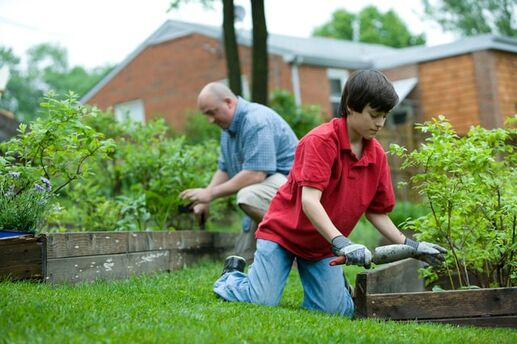Keep Your Kids Happy -- With Allergies
For many kids, this time of year can be frustrating. They want to run outside and play, but the pollen count leaves them sniffling, sneezing and wheezing. What can you do to help? By minimizing their exposure to triggers, providing them with relief and offering some creative distractions, you can still make allergy season fun for the whole family.
Protect Them
There are a few simple things that can be implemented daily to reduce or prevent exposure to environmental allergens.
- Check your filters. Pollen and spores can get trapped in air conditioning filters, so set a specific day each month -- like the day you pay bills -- to change them.
- Schedule indoor activities. On days that the pollen count is significant (check the count here), keep kids inside during the early morning and dusk, when the air has the most allergens. Have fun games and projects in place.
- Do an outfit change. When kids come in from outside or come home from school, have them change their clothes immediately and wash off any residual pollen from their faces and hands.
Provide Relief
Allergy flare-ups are inevitable, so it is helpful to keep a few tricks in your parenting toolbox.
- Try saline solution. It can safely rid eyes and nasal cavities of allergens. (Just remember to keep a box of tissues on hand for the post-application drip.)
- Draw a warm bath. It can provide soothing relief to itchy skin, and the steam may relieve congestion.
- See your pediatrician. Check to see if a prescription or OTC medication can provide relief during the worst of the season.
Include Them
Kids live in the here and now, so trying to explain a concept like allergies can be difficult. In order for them to understand and take ownership of their allergies, involve them in the solution-making process.
- Ask for suggestions. After identifying specific issues -- for instance, the pollen on shoes or higher count on windy days -- ask your child to think of ways to combat the problems. He might suggest leaving a shoe bin at the door or closing windows in gusty weather.
- Assign a responsibility. After realizing weather plays a large role in the impact of allergens, your child can become the family’s meterologist. Every evening, have him report the next day’s weather, so you can prep together.
- Encourage him to share. Telling their friends why they can’t play outside at certain times can help empower your kids -- and makes the situation feel less frustrating.
Distract Them
- Dress up their tissues. With so much sneezing and sniffling, a box of tissues will become a staple for your children. Have your child personalize the box with paint, glitter or stickers so it seems more fun.
- Build a fort. If your kids are stuck inside, make them a special place: Build an elaborate fort with sheets, blankets and furniture. This can be their haven for storytelling, homework and imaginative play.
- Schedule outings. Suffering from spring fever? Have your child choose a special place, like the mall, museum or gym, once a week. This will give him something to look forward to during allergy season.
Like this article? Get more by following us on Facebook at Beauty & Confidence.






